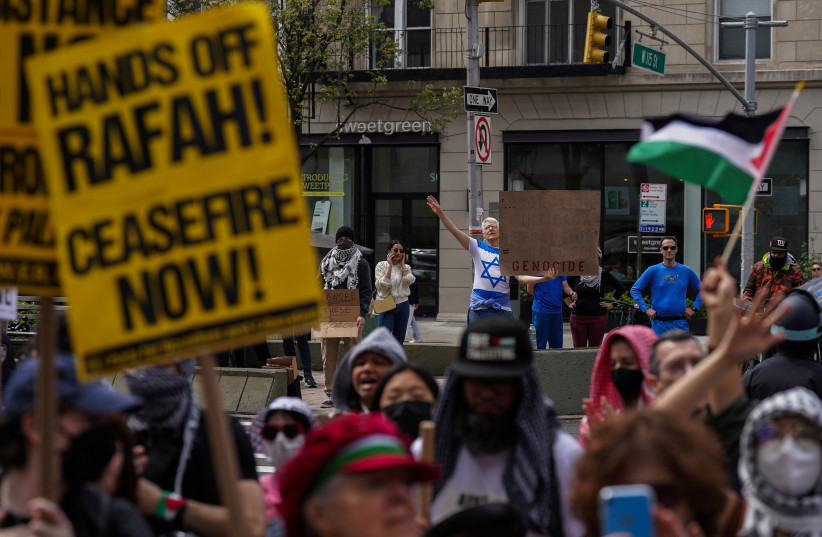Hostage negotiations in Doha won’t end on Thursday and likely continue into Friday, US National Security Communications Adviser John Kirby told reporters in a virtual briefing, as the fate of the Middle East appeared to hand on events unfolding in Qatar.
“Given the complexity of the agreement, I do not anticipate coming out of these talks today with a deal,” Kirby said, as he attempted to downplay expectations regarding an announcement that a deal had been finalized to secure the release of the remaining 115 hostages.
“In fact, I'd expect the talks to continue into tomorrow. This is vital work. The remaining obstacles can be overcome, and we must bring this process to a close,” he said.
Awaiting an attack by Iran
The US had announced the talks last Friday as both Iran and Hezbollah had threatened reprisal attacks against Israel, which Washington feared would spark a regional war.
Iran has since said that it would respect a hostage deal, which the US believes would also lead to a permanent ceasefire to the Gaza war, which began on October 7 as well as the cross-border violence between the IDF and Hezbollah in the northern part of the country.

Kirby said that CIA Director William Burns and special envoy Brett McGurk were representing the US at the talks.
Qatari prime minister Sheikh Mohammed bin Abdulrahman Al Thani and Egypt's intelligence chief Abbas Kamel are also participating. Their countries have been the main mediators between Israeli and Hamas, since 251 hostages were seized on October 7. There are some 115 hostages remaining in Gaza
Officials from Qatar, Egypt, and the US are speaking with the Israeli team, Kirby said, as he referenced the delegation led by Mossad Chief David Barnea that included Shin Bet Chief Ronen Bar, Maj.-Gen. (res.) Nitzan Alon and Netanyahu’s policy adviser Ophir Falk.
“Qatar and Egypt are, in turn mediating with Hamas,” Kirby said.
Kirby said that “Qatar and Egypt are, in turn mediating with Hamas.".
“The resumption of these talks is an important step, and in the lead-up to this meeting, we had already narrowed some gaps,” Kirby said.
“Today, we are focused on the details of the implementation of the agreement,” he said.
The three-phased deal
Both Israel and Hamas have accepted the three-phase framework agreement US President Joe Biden unveiled on May 31, but have inserted clarifications and details regarding how the deal would be executed.
Prime Minister Benjamin Netanyahu has stood on the principled points that the IDF must remain in the Philadelphi and Netzarim Corridors and that there must be a maximal number of live hostages released in the first phase of the deal.
It’s presumed that there are 76 live hostages held in Gaza, and the deal would see some 33 live or dead captives freed in the first phase, which would take place over a six-week period.
The deal as it stands leaves open the question of a permanent ceasefire, a matter that would be decided between phase one and phase two of the deal.
Senior Hamas official Sami Abu Zuhri told Reuters on Thursday the group is committed to the negotiation process and urged mediators to secure Israel's commitment to a proposal Hamas agreed to in early July, which he said would end the war and required a full withdrawal of Israeli troops from Gaza.
In a statement Hamas issued on Wednesday jointly with some smaller factions, it reaffirmed the outstanding demands the factions wanted a ceasefire agreement to achieve.
The group said negotiations should look at ways to implement what was earlier agreed to achieve a ceasefire, a withdrawal of Israeli forces, and an end to the siege. They should also cover the opening of border crossings and reconstruction of Gaza as well as a deal on releasing the Israeli hostages and Palestinian security prisoners and terrorists held in Israeli jails.
Reuters contributed to this report.
